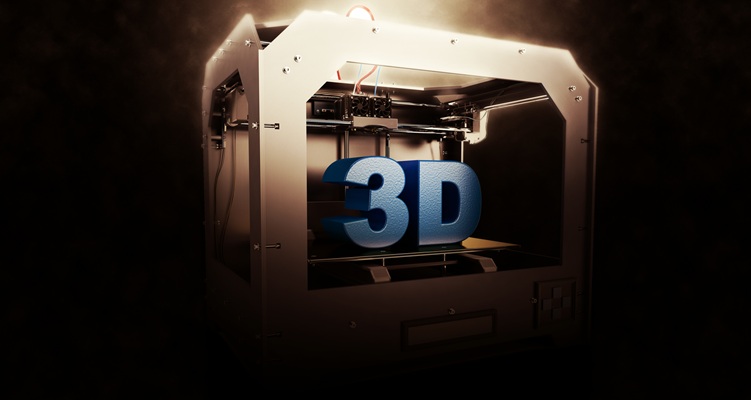Schedule a Call Back
EVs present new challenges and opportunities for tool makers: Pankaj Abhyankar
 Articles
Articles- Mar 01,24
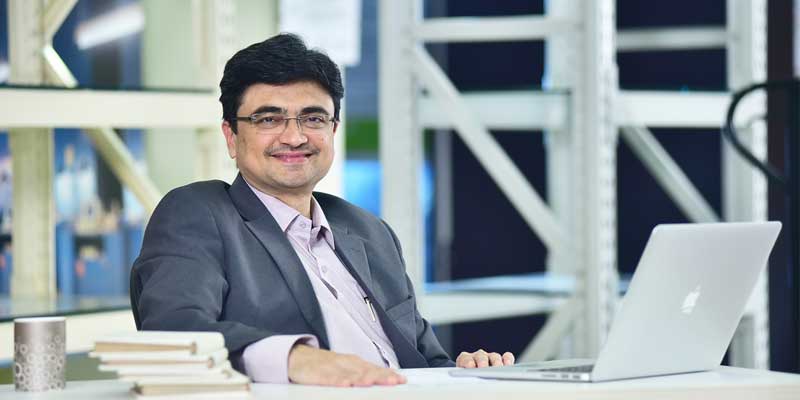
The utilisation of well-designed tools and moulds is instrumental in achieving cost efficiency throughout the manufacturing process. With technological advancements taking place in key user industries, the demand for high-precision tooling is on the rise. As these sectors embrace more sophisticated manufacturing processes, the tooling industry is poised to respond by delivering cutting-edge and precise solutions tailored to meet the sector's specific requirements, says Pankaj Abhyankar, Senior Vice-President & Business Head, Godrej Tooling (a part of Godrej & Boyce Manufacturing Company), in this interview with Rakesh Rao.
Why are tools, moulds & dies so critical for the manufacturing industry?
In the manufacturing industry, tools, moulds, and dies hold a crucial role in ensuring success for various reasons. The utilisation of well-designed tools and moulds is instrumental in achieving cost efficiency throughout the manufacturing process. Efficiently designed tools play a pivotal role in minimising waste and optimising material usage, thereby not only reducing production costs but also enhancing the overall economic viability of the manufacturing operations. The ability to achieve cost efficiency is a paramount factor in maintaining competitiveness within the market, and the proper utilisation of tools and molds is integral to this pursuit.
Moreover, tools, moulds, and dies serve as facilitators for the automation of manufacturing processes. The incorporation of automation brings about improvements in production speed and efficiency, ultimately resulting in increased output. The seamless and dependable performance of these tools is indispensable for the successful implementation of automation, playing a key role in elevating productivity levels within the manufacturing industry. In essence, the synergy between well-designed tools, molds, and automation contributes significantly to the overall success and efficiency of manufacturing operations.
How is Godrej Tooling supporting the growth of user-industries? Would you like to highlight some of your new offerings?
We introduce innovative tool designs that enhance efficiency, precision, and yield to reduce production costs and it can significantly contribute to the growth of user-industries. The part production industry that we serve is on a growth trajectory with increased demands from domestic as well as overseas customers. High levels of production activities demand reliable and timely output from all equipment. Godrej Tooling, being a developer of mass production tooling solutions, has demonstrated superior performance with innovative solutions and provides the lowest TCO (Total Cost of Ownership) by:
This would enable user-industries to enhance their output and be competitive relative to their peers.
As the leading supplier of high-precision tooling solutions, how do you see the evolution of the tooling industry in India? Which industries are driving the demand for tools? The tooling sector in India has undergone significant evolution propelled by various factors. As the manufacturing landscape in the country expands and undergoes modernisation, there is a heightened demand for high-precision tooling solutions across multiple key industries. Notably, sectors such as the automotive industry have emerged as substantial contributors to the increasing need for advanced tooling solutions. The automotive sector, experiencing continuous growth and innovation, consistently requires sophisticated tooling solutions for the precise manufacturing of components and ensuring top-notch production quality. The evolution of the EV era is offering newer challenges and opportunities for the tooling industry. Many new rules are being re-written. For example:
In tandem with this, the surge in electronics manufacturing in India, particularly in the production of consumer electronics and electronic components, has further intensified the demand for precision tooling. This encompasses tools designed for moulding, stamping, and machining electronic parts, highlighting the industry's need for accuracy and efficiency.
Additionally, the railways sector has played a pivotal role in driving the demand for high-precision jigs & fixtures within the country. The success of the Vande Bharat trains has prompted investments in the railways and private sectors for building new generation trains which is the demand driver for tooling. Precision machining and tooling prove indispensable for manufacturing components that are crucial to railway infrastructure. The railways encourage Indian manufacturers to develop import substitutes under “Make in India” which offers opportunities for domestic manufacturing industries. The demand for increased production and superior build quality from railway production units and workshops resulted in the automation of many assembly processes that were traditionally being done manually.
It's crucial to emphasise that the increasing need for high-precision tooling is intricately tied to the growth and technological advancements within key industries. As these sectors undergo evolution and embrace more sophisticated manufacturing processes, the tooling industry is poised to respond by delivering cutting-edge and precise solutions tailored to meet the specific requirements of these dynamic sectors.
What are the key challenges before the toolmakers today? Will the growing electric vehicle industry and rising use of additive technology (3D printing) affect the demand for tooling? The key challenges faced by Indian toolmakers are the capability and infrastructure gap as compared to more mature and experienced Korean, Japanese, and Chinese toolmakers. The OEMs in India still rely majorly on them for their critical part development. These critical technology gaps need to be bridged with a sense of urgency by the domestic toolmakers and supporting industry bodies like TAGMA for capability building and workforce skilling.
The growing electric vehicle sector presents a dual landscape of challenges and opportunities. Adapting to the shifting demand for specialised tools in the production of components specific to electric vehicles such as batteries, motor drive units & light-weight structural parts is imperative. The EV industry is in a nascent phase wherein newer technologies, materials, and processes are being explored and adapted at a faster pace. The tooling industry needs to cater to this need for concurrent tooling development, adapting to product changes, and supply of tools at challenging lead times.
Concurrently, the increasing adoption of additive technologies such as 3D printing introduces a revolutionary factor, prompting toolmakers to delve into inventive methods and integration strategies. Instead of viewing 3D printing technology as a threat to tooling demand, it should be applied successfully in tooling development as we, at Godrej Tooling, have done in diecasting dies for conformal cooling to address the thermal balancing problem. The toolmakers should explore 3D printing technology to address the challenges of proto tool & tool development lead time, production cycle time, etc.
What are key trends to watch out for in the tooling industry in the coming years?
The new trends that the tooling industry is closely observing are in terms of increased traction for EVs, light-weighting in the auto sector, and the emergence of new sectors owing to increased localisation. The tooling industry is expected to raise its level in terms of capability and infrastructure to support customers to meet the localisation mandate by GOI.
The shift to EV is resulting in increased demand for plastic moulds and aluminium forging to replace sheet metal parts. Light-weighting is key to the success of EVs and it will address the vital parameter for the increase in range & efficiency (kilometres per charge). For BIW structural parts, high-integrity UHSS or aluminium/magnesium diecast parts will be the norm of the future. It would require stricter quality norms of porosity, warpage, and elongation to meet structural strength and safety standards. It will demand mastery and application of the latest foundry technology of high-level vacuum, thermo-regulation, vacuum dosing system, jet cooling, and squeeze technology.
The newer sector of aerospace, defense, and medical equipment offers additional opportunities to the domestic tooling industry owing to the localisation drive through the “Make in India” initiative by the Government of India. However, these sectors are characterised by entry barriers in terms of stricter rules of statutory compliance and very high-quality norms of acceptance.
Given the global turmoil, how was the performance of the Indian tooling industry in 2023? What is your expectation for 2024?
The auto sector contributes to the 60 per cent demand of the tooling industry and has a major influence on its performance. Post-covid downfall, the auto sector was not able to ramp up production as desired due to continued chip shortage and irregular shipment of input material. The drop in sales in FY 22 by 12 per cent from the pre-covid levels could be attributed to it. It had an adverse impact on the performance of the tooling industry as well. However, in FY23 auto industry resurged with a about 25 per cent recovery from the previous year and marched to FY24 with a 6-7 per cent increase from the previous year.
The FY23 proved to be a fruitful period for the Indian tooling industry. It has witnessed a commendable surge in demand for tool development. About 30 per cent increase in RFQs for new launches and face lift programs are seen in the current FY24 also and the tooling kick-off is being done with the same pace.
According to industry data by TAGMA, the demand growth rate for commercial toolrooms will continue to march ahead with a CAGR of 7-8 per cent by FY28.
What are your growth plans for Godrej Tooling in the next 2-3 years?
At Godrej Tooling, we serve our client industry through three product lines - namely, diecasting dies, sheet metal tooling, and industrial machines. These 3 LOBs offer distinctive advantages to customers with lower TCO (Total Cost of Ownership) than the industry average. Such leadership position by Godrej Tooling is led by continually applying innovation in products & processes, keeping abreast with the latest technology and making it available to Indian OEMs, access to technology experts through tie-ups, and applying their expertise in developing tooling solutions.
The new opportunity being explored by us in supporting the aerospace industry for its complex and precision tooling needs. We also want to remain at the forefront of the EV industry by investing in developing tooling solutions for large and complex light-weight parts in UHSS and aluminium structural castings. We are also applying innovative manufacturing technologies for tooling development.
Related Stories

How Technology is Powering Seamless EV Charging Experiences
The EV charging experience has transformed from fragmented and complex to user-friendly, driven by real-time data integration, seamless onboarding, and intelligent platforms, writes Raghav Arora, Co..
Read more
Energy storage is an enabler of India’s electrified transport: Sachin Jain
In this interview, Sachin Jain, Head – Strategy, Transformation, Battery and Energy Storage (BES) Business at TKIL Industries, shares insights on technology, innovation, and the future of energy s..
Read more
India’s Automotive Sector Amid Global Uncertainty
The automotive industry is both an engine of growth and a bellwether of India’s global competitiveness. However, the industry needs to build up a strategic roadmap for global success, writes Jupit..
Read moreRelated Products
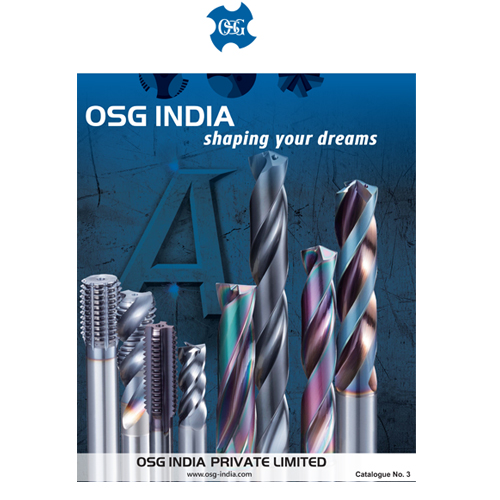
Precision Cutting Tools1
S S Trading Corporation offers a wide range of precision
cutting tools.
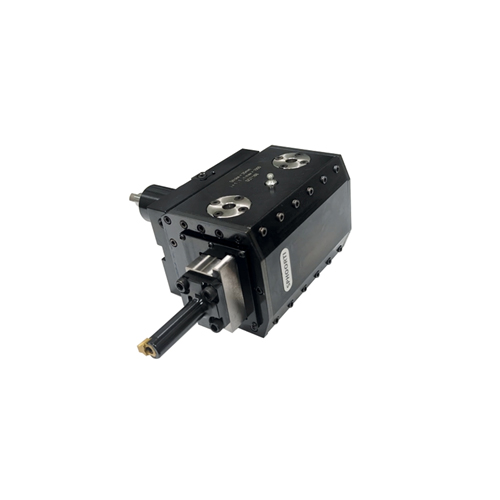
Slotting Head Unit for All Cnc Turn Mill Centers
Sphoorti Machine Tools Pvt Ltd offers a wide range of
slotting head unit for all CNC turn mill centers.
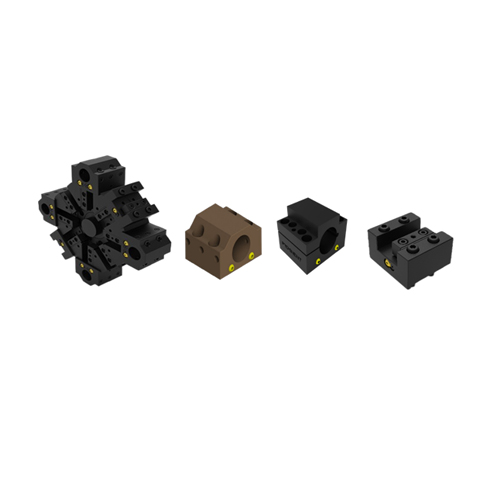
Slotted Tool Disc and Tool Holders
Prominent Machine Tools offers a wide range of slotted tool disc and tool holders.






